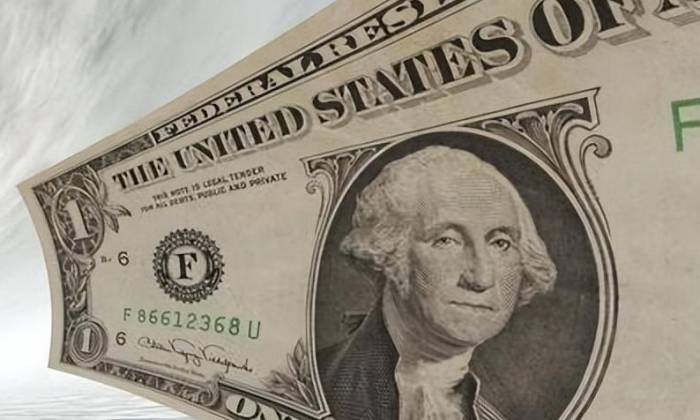On June 28th local time, Indonesian Trade Minister Zulkifli Hasan announced that Indonesia will impose safeguard tariffs ranging from 100% to 200% on imported products, including shoes and ceramics, reinitiating plans to protect domestic industries. At the end of last year, Indonesia had enacted a regulation to strengthen the supervision of over 3,000 imported goods such as food ingredients, electronic products, and chemicals. However, this regulation was eventually revoked as it hindered the circulation of imported materials needed by domestic industries.
Hasan proposed that the tariff policy announced this time will take effect after the relevant regulations are published and may affect the import of shoes, clothing, textiles, cosmetics, and ceramics. According to data from the Indonesian Statistics Bureau, Indonesia mainly imports clothing and apparel accessories from China, Vietnam, and Bangladesh.
As the largest economy and populous country in Southeast Asia, Indonesia is one of the most promising markets in the region for Chinese enterprises. If the aforementioned tax increase policy is ultimately implemented, how much impact will it have on Chinese businesses?
An operator of an international sports footwear and apparel brand in China told Yicai that as a populous country, Indonesia is in a stage of rapid economic development. Both Indonesia and Vietnam have been destinations for global shoe manufacturers to establish new supply bases after moving out of China in recent years. From the brand's perspective, they will focus more on where the market is and the tariff policies of the local market. Trade conflicts and geopolitical risks will make the distribution of global industry supply chains more dispersed.

Anmei Technology, which has followed Chinese automotive leaders like BYD to go global, has established factories in Southeast Asian countries such as Vietnam and Indonesia. Anmei Technology's chairman, Wang Xiaolong, stated that competition in the local industry is becoming increasingly fierce. As a manufacturing enterprise, it is essential to understand who the target customers are and where the competitiveness lies. If it is for the domestic market, then Indonesia, with its large market, is the preferred choice. If it is for manufacturing itself, then countries with relatively developed industrial chains and better supporting facilities, such as Thailand or Vietnam, may be more suitable.
According to Chinese customs data, this year China's exports to emerging markets, as well as mechanical and electrical products and labor-intensive products, have shown strong growth. In the first five months of 2024, China's total trade value with its largest trading partner, ASEAN, increased by 10.8% year-on-year, accounting for 15.8% of the total national foreign trade value. China's total imports and exports to countries participating in the "Belt and Road" initiative reached 8.31 trillion yuan, a year-on-year increase of 7.2%. During the same period, mechanical and electrical products, which account for nearly 60% of exports, increased by 7.9% year-on-year, and labor-intensive product exports grew by 7.1%.
In terms of Indonesia, according to the General Administration of Customs, in the first five months of this year, the total value of China's imports and exports to Indonesia reached 56.615 billion US dollars, a year-on-year decrease of 2.5%, with exports increasing by 8.0% year-on-year and imports decreasing by 11.3%. China's import and export scale with Indonesia ranks third among ASEAN countries, behind Vietnam and Malaysia, and slightly exceeds Thailand.
Faced with the trend of high tariff barriers and the dispersion of global industrial chain layouts, Zhao Xiadi, the general manager of Beijing Lingpao International Trade Co., Ltd., which is located in Hebei, told Yicai that they have shifted from exporting complete shoes to exporting shoe materials this year. "Shoe materials are exported to Indonesia, and complete shoes are made in Indonesia. There are many shoe factories there, but they lack a supply chain." It is precisely the globalization of China's production capacity that has allowed their business, which was originally mainly exporting complete shoes to Europe and America, to gradually transform into exporting shoe materials to emerging markets such as Indonesia.
Ningbo Sanzhong International Business Exhibition Co., Ltd. has held the Asian Consumer Goods Sourcing Expo in Indonesia for five years. Liu Yi, the general manager of the company, previously told Yicai that although the orders from the Southeast Asian market are not as large as those from Europe and America, the market is gradually taking shape, and various business links are becoming more mature. At present, importers and intermediaries are still the main participants in bulk orders, but retailers are gradually setting up procurement centers and offices in China to directly purchase from Chinese export enterprises.If high tariffs are imposed, it will obviously slow down the trend of directly purchasing from export enterprises in China. "The relevant restrictions have not yet been implemented, and the specifics are still to be determined," said Liu Yi, noting that an increasing number of companies have started to set up factories locally. Indonesia's recent hint at imposing safeguard tariffs is mainly to secure local enterprises' orders from the United States. However, whether to establish factories locally still depends on the long-term planning based on the company's own situation.
Shi Zhan, a professor at Shanghai International Studies University, believes that against the backdrop of a comprehensive imbalance, going global is becoming an increasingly important trend. He suggests that going global may have a series of impacts in the future. For Chinese entrepreneurs, on the one hand, they need the courage to go out, and on the other hand, they need the necessary new knowledge, which is something to pay attention to in the future.